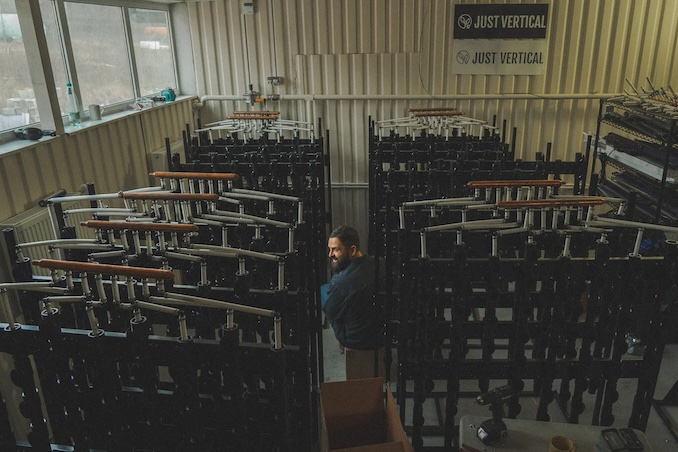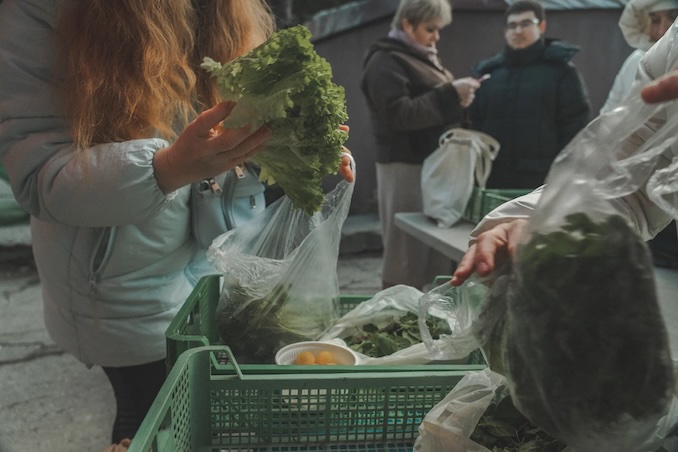In a quiet corner of rural Moldova, inside the concrete walls of a former Soviet barn, a new kind of food revolution is quietly taking root—literally. Thanks to an innovative partnership between Canadian ag-tech company Just Vertical and humanitarian organisation GlobalMedic, a fully functional indoor hydroponic farm is now providing hundreds of pounds of fresh produce each month to Ukrainian refugees and local Moldovan families facing ongoing food insecurity.
The farm, capable of growing more than 1,000 plants simultaneously, was completed in just eight months and is already making a meaningful difference in a region under strain. As war continues across the border in Ukraine, Moldova has become an essential refuge, with more than 127,000 Ukrainians still residing in the country. The influx has placed additional pressure on local resources, particularly food supply chains disrupted by conflict, climate, and inflation.
“Conflict, climate, and economic instability have made it increasingly difficult for communities to access fresh food,” said Conner Tidd, Co-Founder and CEO of Just Vertical. “By implementing hydroponic technology in Moldova, we’re giving people the tools to grow their own food—helping to create long-term stability in an unpredictable world.”
The project uses Just Vertical’s green wall system—compact, vertical growing modules that require 95% less water than traditional agriculture and no pesticides. Installed inside a retrofitted barn in the village of Rîșcova, the system now produces over 350 pounds of culturally relevant crops every month, such as herbs, leafy greens, and vegetables familiar to both Ukrainian and Moldovan cuisines.
“Food insecurity isn’t just about access—it’s about control,” said Rahul Singh, Executive Director of GlobalMedic. “This project ensures that refugees and their hosts have a sustainable, local food source, reducing dependence on unstable supply chains and foreign aid.”
From Barn to Big Screen

The impact of the initiative is documented in Moldova Feeds, a compelling short film directed by Tidd and fellow Just Vertical team member Christopher Di Grazia. The documentary, which features on-the-ground footage and testimonials from both refugees and local farmers, was recently recognized with Best Short Documentary – Advertising at the 2025 Niagara Canada International Film Festival. Edited by Canadian Screen Award nominee Andrew King, the film brings a human face to a high-tech solution.
“This isn’t just a story about farming—it’s a story about resilience,” said Di Grazia. “We wanted to show how Canadian innovation can empower communities far from home.”
A New Model for Humanitarian Food Aid
While vertical farming is rapidly gaining traction in cities across North America and Europe, this project represents one of the first applications of Canadian indoor agriculture technology in an active humanitarian context. And it’s already being looked at as a scalable model for food relief in other crisis zones.
Key to the project’s success was the multi-partner collaboration that brought it to life. In addition to Just Vertical and GlobalMedic, the project was implemented with help from local organisation Katalyst Kitchens, and funded by the philanthropic Myhal Foundation, known for its deep commitment to sustainable development and support for Ukrainian communities.
A Blueprint for the Future

As war and climate change continue to reshape global food systems, this project offers a glimpse of what future humanitarian aid could look like—localized, sustainable, and technology-driven.
“This is what twenty-first century food relief should be: empowering, efficient, and rooted in dignity,” Singh added. “We’re not just giving people food—we’re helping them grow it.”
As the farm continues to thrive in Moldova, the team behind it is already exploring new opportunities to expand across Eastern Europe and beyond. With technology designed in Toronto and rooted in compassion, the future of food aid is growing—one plant at a time.

